Reason's 2019 Gift Guide
Our tour through the year's best books, TV, comics, music, and more
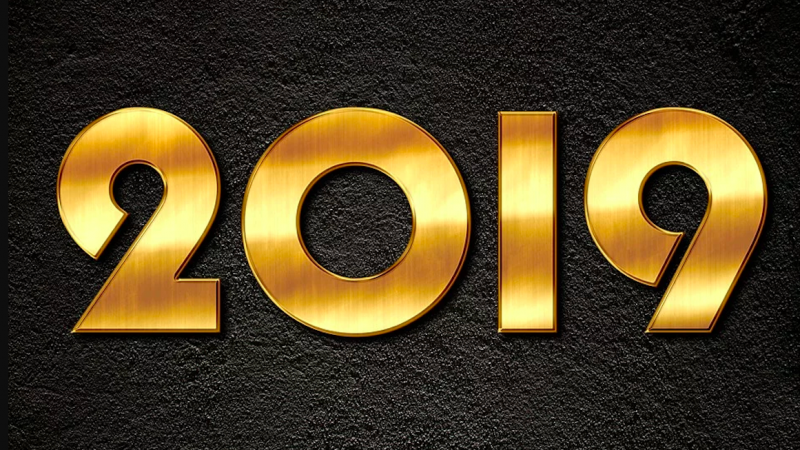
As another year crawls to an end, we've asked our staff to select some of the best books, TV, music, and other media released in 2019. Our recommendations range from a BBC spy show to an obsessive history of a defunct comic book, from a mammoth novel about an online afterlife to a subscription to a rival magazine. —Jesse Walker
Eric Boehm, reporter:

Billie Eilish is a homeschooled anti-pop star who exploded into the mainstream this year when her eccentric debut album, When We All Fall Asleep, Where Do We Go, soared to the top of the charts.
In mid-August, Eilish's inescapable hit "Bad Guy" ended a record-breaking 19-week run on top of the Billboard Hot 100 for Lil Nas X's equally iconic "Old Town Road." Like Lil Nas X's so-outlandish-it's-brilliant country/trap crossover, "Bad Guy" stands out because it is so unexpected. Seventeen-year-old girls with pop radio hits are routinely suggestive, but Eilish's lyrics are both overtly sexual ("bruises on both my knees for you") and fully autonomous ("I do what I want when I'm wanting to").
Sporting oversized sweatshirts, seemingly unkempt neon hair, and a perpetually indifferent expression, Eilish isn't so much subverting the music industry's idea of a pop princess as she is murdering it backstage and then telling you how she did it. The best track on the album, "Bury Your Friend," is a gothic EDM ballad with so many descriptions of self-harm and suicide that you can imagine it launching congressional inquiries. (Thankfully it hasn't.)
But Eilish brings more to the table than shock value. She's a talented singer with an impressive songwriting range—from an electropop banger inspired by a memorable scene from BBC's Sherlock ("You Should See Me in a Crown") to a piano-driven heartbreaker ("When The Party's Over") and a track with a ukulele as the featured instrument.
Eilish isn't quite 18 yet, but she's wise beyond her years and exudes unexpected confidence. Maybe that's because she's never set foot in a school, or maybe it's because her middle name is—yes, really—Pirate. Either way, you'll want to stay tuned.
Shikha Dalmia, senior analyst:
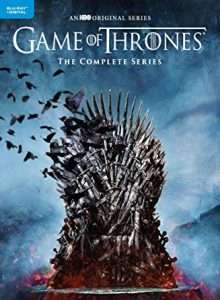
The complete Blu-Ray set of Game of Thrones—including the unfairly maligned final season—has just hit the market. This is a must-have for any collector of quintessentially libertarian cultural fare.
Game of Thrones is a grand epic that weaves together many themes: human mortality, the treachery of realpolitik, the messiness of governing, the difficulty of collective action even in the face of an existential threat, the moral dilemma of choosing between love and principles, and much more. But one constant strand running over the eight seasons is the corruptibility of power. It doesn't matter whether the characters pursuing the power are good (Daenerys), bad (Joffrey, Ramsey, Cersei) or in-between (Stannis, Theon). They all (with the possible exception of Sansa) end up in a morally hideous place. Conversely, the ones indifferent to power manage to hang on to their integrity. Even the revenge that consumes Arya is shown to lead to less dark a place than power. In Game of Thrones, power can drive a man to burn a screaming daughter he adores, all to appease the gods and advance his quest for the throne.
The final season brings this theme home when a character full of moral fervor gets so drunk on her power that she destroys an entire city for its own good. She ruthlessly kills and maims men, women, and children en masse, all to "liberate" them. The only reason she isn't able to unleash her tyranny of good intentions across the world is because her horrified lover assassinates her.
That lover is a natural born leader, but he is uncomfortable with ruling. Instead he serenely rides off to hang out with the Wildings, supposed savages who bend to no one and require no one to bend to them. They are the very embodiment of the live-and-let-live ethos that the do-gooding tyrant wanted to create at gunpoint.
Zuri Davis, assistant editor:

If Martin Luther King, Jr., were still alive, J. Cole is pretty certain he would have been on the Dreamville label. In his absence, the "No Role Modelz" rapper and his label have released one of the most ambitious musical crossovers to date: Revenge of the Dreamers III brings some already unparalleled artists in the Dreamville collective—Bas, Ari Lennox, EarthGang—together with such equally impressive guest artists as Vince Staples, Dreezy, and TyDolla$ign.
The album was created when a curated list of rappers, singers, and producers were invited by golden ticket to an Atlanta recording session, where 10 days of spontaneous order reigned: Artists had to run between different rooms to collaborate and compete for their rightful spots on the album. (Bas used the words "Shark Tank" to describe at least one of the recording rooms.) The result: a unique mix of lyrical rap, bass-boosting trap, and ethereal R&B.
Need some songs to start? Try "Don't Hit Me Right Now" and "Sacrifices."
Brian Doherty, senior editor:
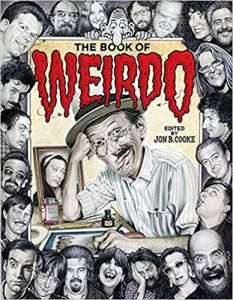
Underground cartoonist Robert Crumb defined the iconography of the hippie '60s without being truly of it. As the Reagan '80s dawned, he later recalled, a "vision of this kooky, screwball, magazine erupted in all its tacky, low-life, dumb-ass essence," one that mixed "old 1940 and '50s girlie-and-cartoon joke books" along with the vibe of "early Mad…and the self-published 'punk' 'zines of the period."
That obsession became Weirdo, a magazine featuring fresh work from Crumb, from some of his old underground pals, and from younger artists working in that tradition. (The manically gross and revealing Dori Seda was one of his finest discoveries here.) The magazine, which ran from 1981 to 1993, placed quality cartoonists beside the chicken-scratch of the deluded, homeless, and institutionalized, surrounded by prankish cultural artifacts such as the doctrines of the Church of the SubGenius, a new-wave-era parody of both traditional and space-age religious beliefs. Crumb eventually handed over editorship of the mag to future Reason contributing editor Peter Bagge, who later passed it to Aline Kominsky-Crumb.
Crumb's obsession has been transmitted to Jon B. Cooke, editor of the magazine Comic Book Creator. The result is The Book of Weirdo. In 288 word- and image-dense pages, Cooke delivers the widest possible range of perspectives and backstory with a near-manic indefatigability. He tried, and very nearly succeeded, to get insights from every artist who contributed to Weirdo's 28 issues, and he nailed down definitive interviews with all three editors. As pop-cultural historical research goes, it gets no more dense, and no more delightful, than this book.
Nick Gillespie, editor at large:
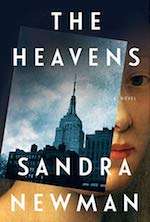
Sandra Newman's The Heavens is literary fiction at its best: a haunting, beautifully written love story that toggles between Shakespeare's England and New York shortly before the 2000 election. The female protagonist (there's a male one, too) time-travels via dreams, raising profound, disturbing, and mesmerizing questions about our ability to create alternative timelines in worlds in which we are thrown against our will.
Katherine Mangu-Ward, editor in chief:
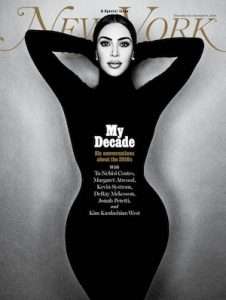
Magazines make great gifts. (Ahem.) So if you're the kind of person who likes to give magazines as gifts, consider New York a solid second choice.
Reading New York magazine religiously in print and online over the last year has allowed me to appear to be approximately 23 percent more pop culture–literate at parties without the dirty feeling that sometimes comes from acquiring such knowledge. (I used to rely on The Daily Mail to perform this function. It wasn't pretty.) The clickbaity stuff about Rhianna's lingerie line is nicely balanced out by serious longform features, such as former Reason staffer Kerry Howley's great profile of Democratic presidential hopeful Tulsi Gabbard or Anna Silman's interesting exploration of ketamine's recent uptick in popularity.
Dollar for dollar, a New York subscription will provide more information and fun than most of the stuff on this list, and you can roll one up and actually jam it into a stocking. The magazine's politics are conventionally leftish, but there's more to life than politics. And anyway, you have Reason for that.
Mike Riggs, deputy managing editor:

I once bought a book based solely on this line from an Amazon review: "I cannot recommend this book enough and yet I hesitate, briefly, because I want everyone I talk to about this book to find it as bizarre and addictive as I do." I feel exactly the same way about AMC's Lodge 49, the second (and probably final) season of which aired this past year. The show follows Sean "Dud" Dudley (Wyatt Russell), a surfer kicking around Long Beach looking for meaning in the wake of his father's death and the closure of the family pool-cleaning business. Dud finds that purpose when he discovers a down-on-its-luck fraternal order and gets wrapped up in its dramas, both petty and grand.
Produced by Paul Giamatti (who also has a supporting role), Lodge 49 is beautiful and weird and sometimes confusing, but never cruel or too cool in the way that prestige TV sometimes can be. It would spoil the plot to tell you what it's "about," but if you like magical realism, the occult, alchemical quests, space-race conspiracy theories, secret orders, beach vibes, psychedelics, chill soundtracks, and/or watching as a show subtly weaves disparate threads into a tapestry that is more fun to look at than it is easy to understand, you should work this into your TV schedule.
If you also happen to like three-episode arcs with obvious setups and tidy payoffs, Lodge 49 will frustrate you early on. As in real life, some of Lodge 49's connections just exist without necessarily advancing the plot. Some connections do advance the plot but don't matter until season 2. Some connections won't matter until season 3 (if we ever get a season 3). It is better to treat the show like a road trip. Your fellow travelers play characters you can love and root for, even when they're being dense.
Lodge 49 is not the kind of show that can go on indefinitely, but its magic feels timeless. Get to it when you can, preferably when you've got a solid 48 minutes you can spare without checking your phone. But do get to it. And please don't talk to me about it unless you find it as bizarre and addictive and magical as I do.
Stephanie Slade, managing editor:
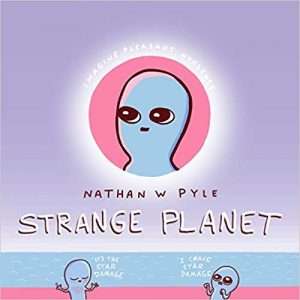
Years ago, while home for Christmas, I remarked that gift giving is an inefficient use of resources: As economists like to point out, the buyer generally spends more than the recipient would have paid for the same item. Peering at me over the top of his newspaper, my father replied to the effect that this sort of observation is why people don't like economists very much.
I thought of that anecdote when I came across Strange Planet, a charming web comic about humanoid aliens by artist Nathan W. Pyle. In one four-panel strip, a character receives a scented candle as a birthday present. The giver then does something no human being would, running through all the ways the candle is, in fact, a thoroughly impractical object. ("It's a primitive light source….Not super bright, unless you knock it over and it destroys all it touches…")
Pyle's new hardcover Strange Planet collection is full of comics—some much-loved, others never before seen—that reveal our everyday behaviors to be hilariously illogical in much this manner. What makes them a delight is the earnestness with which the characters go on carrying out those behaviors anyway.
In the aforementioned strip, the recipient lights up with genuine gratitude for the candle. Thus, even as the giver breaks human convention by openly expressing the silliness of the situation, his friend responds as you or I would to a heartfelt gift: with far more joy than an economist who sees only monetary value might predict.
Robby Soave, senior editor:
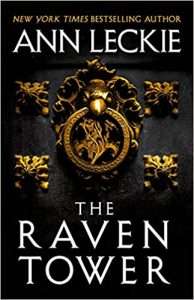
The story begins with an ominous warning: "There will be a reckoning." Someone—or something—is owed a debt, and it must be paid in full. A deal is a deal.
The Raven Tower, the first fantasy novel by the acclaimed science fiction author Ann Leckie, is all about deals. Leckie envisions a fictional world, Iraden, where gods and mortals co-exist, working side by side, often to mutual benefit. A forest god, for instance, might arrange for some lumber to turn up downriver, where it is needed for expanding a town. In return, the townsfolk will nourish the god with their prayers. Greedy gods may overreach themselves and cease to exist, while mortals who default on their promises invite annihilation. Trade is a delicate thing, but it is enriching when it's worked out. In its dealings with the practical, economical side of worshiping the divine, the novel has quite a lot going for it.
But not everything in Iraden is quite as it seems. The eponymous Raven is up to something, and its tower hides a secret. The protagonist, a soldier and friend of the prince, is also keeping something hidden. And then there is the matter of the unseen narrator, who tells the entire story from the second-person perspective: You did this, you did that. (It's jarring at first, as if Leckie is breaking some unspoken rule of fantasy writing, but readers will adapt quickly.) The narrator seems courteous and patient. But, well…the reckoning.
Peter Suderman, features editor:
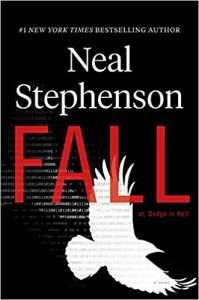
You can read sci-fi visionary Neal Stephenson's latest novel, the impeccably punctuated Fall; or, Dodge in Hell, as an elaborate satire of social media's effect on news and information consumption, an extended thought experiment about an uploaded post-human future, a Dungeons & Dragons–esque tour of a Miltonesque mythological world, or even just as a good old-fashioned adventure quest in giant-sized form.
The nearly 900-page novel is, like most Stephenson tomes, an absolute unit, packed with dazzlingly dense detours into everything from the technical challenges of digital life extension (it involves a lot of power consumption) to the moral and philosophical implications of starting a new universe based on one man's uploaded brain (there are a lot of Biblical allusions) to observations about the exercise cults and diet fads of present-day Seattle tech workers (protein shakes are mentioned) to examinations of the legal frameworks governing post-death digital personhood (it's very, very complicated).
As with previous Stephenson novels, the book's worldview is libertarian in all but name: He regards regulations as a menace, and he embraces spontaneous order, distributed solutions, and individual self-discovery. He takes a dark view of authoritarian tendencies wherever they might arise, and he affirms the value, moral and economic, of technological progress. He sees science fiction's role as helping all of us to envision a better, freer, stranger world.
If Fall has a flaw, it's that it's all detours, a sprawling network of character vignettes and informational rabbit-holes, each more elaborate than the last, rather than a single, sustained story with a clearly defined cast. But this unmanageable abundance of ideas is, in some ways, the novel's, and Stephenson's, strength. Like its author, the book is interested in practically everything. As a result, practically everything in it is interesting.
Jesse Walker, books editor:

I'm pretty sure I was hatewatching Riverdale when it started. The initial episodes essentially revamped the Archie Comics universe as a '90s teen drama, which is just the sort of misbegotten idea that I'll watch a while just to gawk at it. There was a subplot about a serial killer too, and the occasional odd dream sequence—things that seemed a little weird, but not crazy weird. Not at first.
But little by little, Riverdale revealed its real identity: a witty, gruesome, and deliriously pulpy serial that veers wildly from one genre pastiche to another. This lowbrow-pomo show has by turns been a mob movie, a musical, a Gothic tale, a boarding-school mystery, and more—it even did a note-perfect parody of The Breakfast Club. (Or at least the episode started as a parody of The Breakfast Club. By the end of the hour, a horror story had taken over.) At one point the series had two ongoing storylines, one a prison boxing melodrama and the other a metafictional homage to the '80s Dungeons & Dragons moral panic. Adding to the hallucinatory effect, the program periodically tries its hand at social commentary, as with an extended storyline about the tensions between the north side and south side of Riverdale.
Have you ever fallen asleep watching one movie on TV, woken up during another, and not been clear in the morning about which scenes were in which film and which were in the dream you had in-between? Riverdale is like that. The show's plot points have included a cult, a bear attack, the attempted assassination of a mayoral candidate, and a gang of masked vigilantes led by Archie Andrews. The people running the series don't care if they contradict themselves, don't try to keep a consistent tone, and don't mind dropping playful jokes into their soundtrack selections. I don't know if this is "good," but by God it's great.
Matt Welch, editor at large:
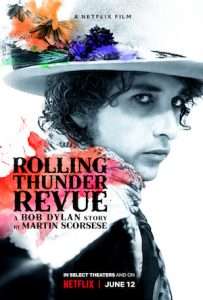
Did the world really need another Martin Scorsese documentary about Bob Dylan? The conscience says "no," or at least "OK Boomer." But the eyes and ears may have other plans.
Rolling Thunder Revue: A Bob Dylan Story reminisces about Dylan's legendary if short-lived Rolling Thunder Revue concert series in the grim mid-'70s Northeast. Appreciative fans and critics alike have tended to focus on the Netflix production's mischievous blending of fiction with fact, and that's certainly part of the fun here—the insertion of a teenaged Sharon Stone, the shaggy-dog story about Dylan taking his face-painting cues from KISS, etc.
But what grabbed this non-Dylanophile by the windpipe and never let go was the almost unbearably intense, high quality, full-song concert footage. Blue eyes blasting out fire, Dylan takes center stage with some of the finest rock musicians ever assembled—the Byrds' Roger McGuinn, Bowie guitar hero Mick Ronson, and oh hey is that T. Bone Burnett?—and turns them all into afterthoughts. I'm grateful for their contributions (this is close to my ideal touring rock band), but that little fellow in the big hat is spitting out lasers and (could it really be?) singing his ass off. Like, with range and everything.
Typical of this period, which overlaps with his masterpiece Blood on the Tracks, Dylan has a lot of love problems on his mind. This informs two sections that move the heart more than any Allen Ginsberg '60s rap or Sam Shepard mockumentary hijinks ever could: the way Joanie Baez and Robert Zimmerman still move each other even now with their voices, and then one gasp-inducing hootenanny—at Gordon Lightfoot's pad, no less—where a jumpy Dylan and a stoned McGuinn try to strum along with the piercing romantic complications of one Joni Mitchell.
The performances in this picture sent me down a rabbit hole that I show zero signs of emerging from. OK Boomers!
Liz Wolfe, staff editor:
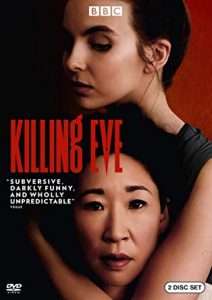
In the first season of the Sapphic BBC drama Killing Eve, MI6 agent Eve Polastri plays a game of cat and mouse with Villanelle, a killer from a shadowy crime syndicate. The second season, which aired in April and May, is just as good as the first.
When the season begins, Villanelle is injured and on the lam while Eve is called back to London to investigate a second assassin: a killer called The Ghost. Villanelle, ever attention-seeking, keeps upping the drama of her murders to get Polastri back on her case. In one scene, set in an Amsterdam brothel, Villanelle, dressed like an erotic Little Bo Peep, butchers a man who thinks he's paying for sex in a shop window while his spurned wife, who commissioned the killing, watches.
This season introduces the data firm tech billionaire Aaron Peel, a potential patricide suspect who, in one scene, reminds Polastri that the government's monopoly on intelligence-gathering is over because companies like his have them beat. With the arrival of this Thiel-Musk mashup villain, Killing Eve keeps hitting the right notes.
Editor's Note: As of February 29, 2024, commenting privileges on reason.com posts are limited to Reason Plus subscribers. Past commenters are grandfathered in for a temporary period. Subscribe here to preserve your ability to comment. Your Reason Plus subscription also gives you an ad-free version of reason.com, along with full access to the digital edition and archives of Reason magazine. We request that comments be civil and on-topic. We do not moderate or assume any responsibility for comments, which are owned by the readers who post them. Comments do not represent the views of reason.com or Reason Foundation. We reserve the right to delete any comment and ban commenters for any reason at any time. Comments may only be edited within 5 minutes of posting. Report abuses.
Please to post comments


If anybody ever got me a magazine as a gift, especially a shitty one as mentioned, I would think they simply didnt like me.
JesseAz
If they got you Reason, that would be good. New York mag is a lump of coal. Cover to cover Trump bashing. I don't like Trump but I can find other things to talk about. They can't.
I bet they all support coercive monopolies (limited or not)
Some good recommendation's here. Rigg's Lodge 49 sounds the most intriguing. Will check it out.
This list is AMAZING. It may well be the cultural offerings of the past year I have the least interest in.
In each case, the recommendation pitch only serves to strengthen my conviction that passing it by in favor of sifting through my facebook feed is the better choice.
Eilish's inescapable hit
Never heard it or of it. Just took a little listen. Couldn't go more than about 8 seconds. Tried the other links. Fuck that sucks hard. Extreme cringe.
Same here -- escaped quite easily after about 5 seconds.
Magazines make great gifts.
Pre-1990.
30 round magazines make great gifts.
Outside of the Tri state area
I was going to subscribe to reason, but I guess I'll subscribe to New York instead.
*renews subscription to shotgun news instead*
The best gift for me is always a magazine. I love receiving magazine as a gift. Great article as always.
Thanks.
Wishing you merry christmas
A book recommendation, based on actual feedback (did Xmas gifts with my extended family early this year at Thanksgiving)
"How To: Absurd Scientific Advice for Common Real-World Problems"
https://www.amazon.com/exec/obidos/ASIN/0525537090/reasonmagazinea-20/
by the creator of the xkcd comic...I gave this to my 12 year old nephew, he loved it. His dad (my brother) stole it a few times too.
Billie Elish is an industry grasping at straws to find something different.
Riverdale is straight out of a College diversity studies brainstorming session. Godawful stuff.
And it wasn't just the final season of GoT, the shit was getting the fan for the last three. The girl power fell short of the montage in Endgame, but it was close enough to kill a franchise that started out with a great deal of promise.
Christmas is coming! We are going to have fun that we have been waiting for! But it’s impossible to navigate the modern Christmas without any assistance: https://freeappsforme.com/merry-christmas-apps/
Now New Year is coming .Lets Buy Wollen winter Scaarf for men and women at https://www.veavestudio.com